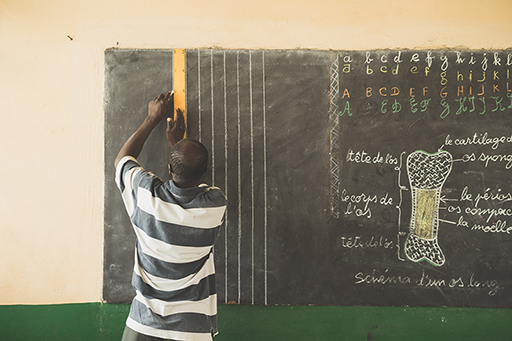6 Francophone Africa
The presence of the French language in Africa is a legacy of French colonialism, a painful historical era which was recognised as a crime against humanity by French President Emmanuel Macron in 2017 (France24, 2017). It is therefore not surprising that it’s a source of tension, and the French language has been rejected in some parts of Africa where it was previously more commonly spoken. For example, French is spoken but is not an official language in the three North African nations which were once governed by France: Morocco, Algeria and Tunisia.
As it stands currently, 59% of the people who speak French as their main language on a daily basis around the world are located in Africa (OIF, 2018), and this is increasing due to the high birth rate and population growth in francophone countries in Africa. It has been predicted that 85% of the world’s French speakers could be located in Africa, principally in sub-Saharan Africa, by 2050. Most African people speak French alongside another language, e.g. Arabic in North African countries or Wolof in Senegal. And while French is associated with France’s colonial impact on the continent, it is nonetheless seen as an important shared language, with the majority of French speakers in Africa wanting their descendants to be French speakers too. If you would like to find out more about French on the African continent, you may wish to do some independent further reading – there’s a BBC article from 2019 linked in the References section at the end of this week that can get you started.
Africa, then, is a continent where the population is truly multilingual, with French being one of the languages shared by speakers with diverse backgrounds and a variety of first or second languages. By becoming a learner of French, you will join their ranks as a budding polyglot and develop a link to countless new cultures.

